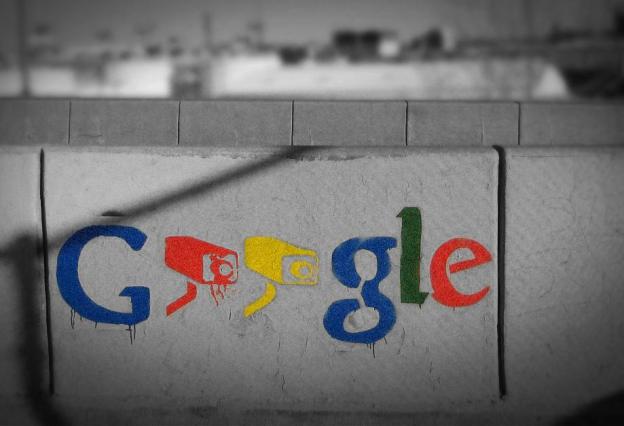
Our story begins in a bar in Amsterdam in the summer of 2001. I was slightly inebriated and a heated conversation with friends turned into a debate on privacy and porn-surfing habits. I can remember being amazed when one of my friends claimed he didn’t surf porn on the Internet because Google might be recording his every perverted move.
He’s not a celebrity. I can’t imagine why anyone would be interested in a list of his porn preferences. Is Google going to use it to blackmail him? Maybe threaten to send his wife a list? Does anyone in the wider world care about his predilection for busty MILFs? (I don’t want to impugn his anonymous honor, so I should point out that’s my predilection, not his.)
More than a decade later, the Web is awash with scaremongering stories about how Google is turning us all into products it sells to advertisers. Our enjoyment of all these ostensibly free Google services, from Gmail to Google Maps to YouTube, must be tempered by the idea that Google is pimping us out behind our backs. What is it that people are so afraid of? What does everyone imagine that Google is going to do with our information?
What does Google record?
At the time I thought it was highly unlikely that Google would keep that kind of information. Turns out I was wrong about the likelihood of Google recording everything. The ability to compile detailed information on browsing habits has been central to its development as an advertising company.
Google compiles information about you from any of its services that you use. That can include Web search history, emails and contacts from Gmail, chat history, Google+ likes and posts, documents accessed in Google Docs, YouTube activity, Blogger and Picasa photos, posts, and comments, information on purchases through Google Wallet and Checkout, Google Voice data on numbers and call duration – the list goes on and on.

What does Google actually do with your information?
There are basically two things Google does with your data:
1) It aggregates large quantities of anonymized data to improve its own and partner’s services
2) It uses your information to serve targeted advertising to you
Aggregated data allows companies to measure trends, analyze what people want, how they behave, and theoretically improve services or tailor them for specific demographics. Concerns generally focus on stereotyping, but companies always use stereotypes to classify consumers, at least with aggregate data from Google they are getting a more reliable picture.
Targeted advertising is about analyzing what you search for and talk about in emails and elsewhere and then trying to serve ads that cover those topics. If you talk about football incessantly then expect to see football-related ads popping up more often. If you consider that you’ll be served with advertising whatever you do, surely targeted advertising is better? At least it might be something you’re actually interested in.

The company is not behaving altruistically, but it is also not inherently evil simply because it compiles information on you. Google uses the information to improve its services so it can make more money.
The obvious answer for anyone concerned about Google compiling information on them is simply not to use Google services. Good luck finding alternative services that don’t do the same, though.
Why worry about Google specifically?
I have to assume that the panic and vitriol surrounding Google’s data collection is merely because it is the biggest search company around and so many people use its services. Obviously Facebook, Microsoft and many, many other companies are also doing their best to compile detailed data on your online activities.
You also have to consider your ISPs and the government. Whether Google is compiling data on you or not, you can be sure that the ISPs are and governments can easily compel them to hand that data over, although they rarely refuse requests anyway.
The real concern
According to comScore, Google accounted for 66.5 percent of all searches and that amounted to 11.4 billion searches – in April 2012 alone. All that information has to be stored physically somewhere. Huge data centers are storing vast quantities of data, often inefficiently, according to the New York Times. We are struggling to store data as fast as we produce it.

When you consider how much of that data is junk, the whole thing just seems stupid. Royal Pingdom’s annual Internet stat roundup for 2011 revealed that 71 percent of all email worldwide was spam, that 48 hours of YouTube video was uploaded every minute, and that there are well over 100 billion photos on Facebook.
The privacy principle
I understand that privacy is a point of principle for some people. It’s not about what they are doing, which is usually inane and of no interest to anyone; it is about a perceived lack of respect. Our society is packed with double standards on this issue, though. Privacy laws are different from country to country. Are you concerned that the police can take a DNA sample from you, along with fingerprints and photographs, even if you are just arrested on suspicion of a “serious offense?”
Here in Scotland the police can take a DNA swab from you if “a police officer has reasonable grounds to suspect that you are committing, or have committed an offense”. I’m wary of that old argument that if you have nothing to hide you won’t mind giving up your privacy, but Google’s data compilation doesn’t scare me. It doesn’t get much more private than DNA does it? We’re already giving up our privacy in far more worrying ways than online activity.
Google and the rest of the data mining, online advert gang are merely adhering to a long established trade-off, namely that we accept advertising in return for free services. I don’t think it’s a bad deal, and if you’re really concerned about privacy you need to look beyond Google.
[Image credit – Network server room: .shock/Shutterstock]


